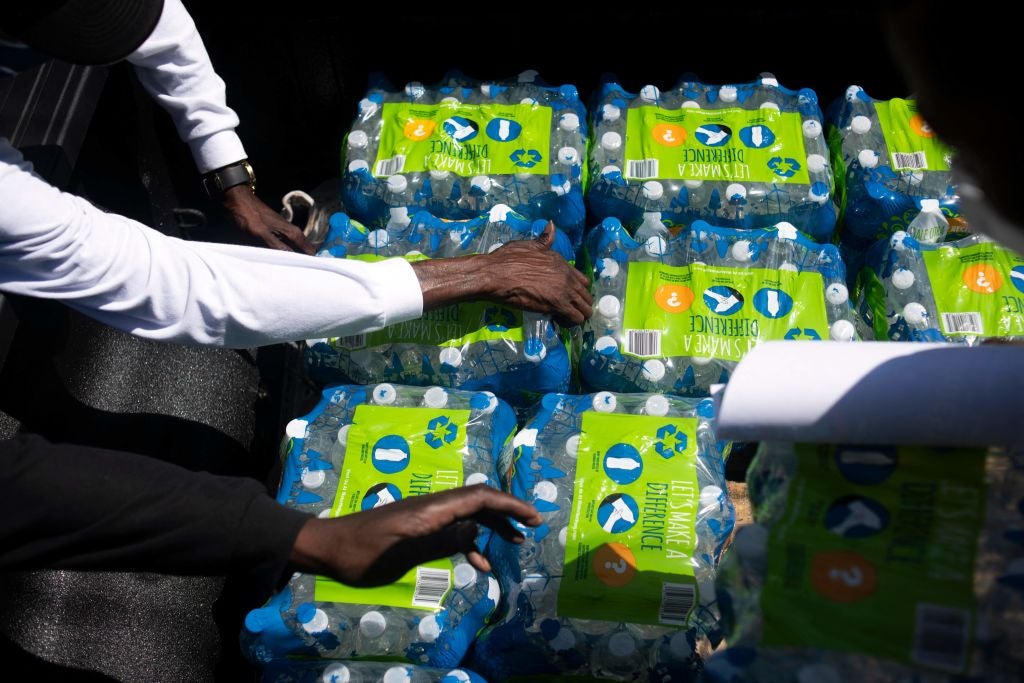Right now, the water supply in Jackson, Mississippi, is so inadequate that its 180,000 residents (82% of which are Black) cannot drink or brush their teeth with it. The city had already been on a boil notice since late July, but recent flooding from excessive rainfall and the Pearl River flooding has worsened the situation.
Suggested Reading
Mississippi Gov. Tate Reeves has declared a state of emergency and intends to sign an emergency declaration for the capital city’s water system to create an “incident command center” for citizens to receive bottled water. Jackson’s latest troubles mean “the city cannot produce enough water to fight fires, to flush toilets reliably, and to meet other critical needs,” the governor said.
“Please stay safe,” Mississippi Gov. Tate Reeves said at the evening briefing. “Do not drink the water. In too many cases, it is raw water from the reservoir being pushed through the pipes. Be smart, protect yourself, protect your family, preserve water, look out for your fellow man and look out for your neighbors.”
Additionally, Gov. Tate states, “until it is fixed, it means we do not have reliable running water at scale,” meaning residents won’t have drinkable water for the foreseeable future. Citizens have pointed to a significant decrease in water pressure and raw sewage flowing in the streets. Another aspect of this is the failure of the water pumps at the O.B. Curtis plant, one of two that operate in Jackson. CNN notes that the Curtis plant provides about 50 million gallons for the city daily.
“The main pumps had recently been damaged severely,” Reeves said, “about the same time as the prolonged boil water notice began. The facility is now operating on smaller backup pumps.”
The O.B. Curtis plant seems to have a lot of issues going on, ranging from not knowing how much water runs into Jackson’s water supply to a lack of qualified workers. The plant might not be producing any water in the coming days, the Mississippi Free Press says. Jackson Mayor Chokwe Antar Lumumba reiterated that flood waters caused issues at the treatment plant. Gov. Tate stated that the state would fight to get the workers needed, but Jackson’s water difficulties have long been a problem.
In 2014, Brookings pointed out an almost $2 billion backlog needed to address water repairs. While Jackson didn’t have the money to replace all lead piping, the plan the city elected to go with led to water being shut off for 20,000 residents who were behind on payments. A cold weather report by the Federal Energy Regulatory Commission showed the O.B. Curtis plant was not built to withstand freezing temperatures, leaving many without running water for days in 2021 and again this year.
Fixing Jackson’s water system could cost $1 billion, but only $459 million is allocated in the bipartisan infrastructure package to improve water for the entire state of Mississippi. Clearly, someone has to step in and provide funds to predominantly Black cities like Jackson and Flint, Michigan, while ensuring state and local government representatives properly put them to use.
Straight From 
Sign up for our free daily newsletter.



